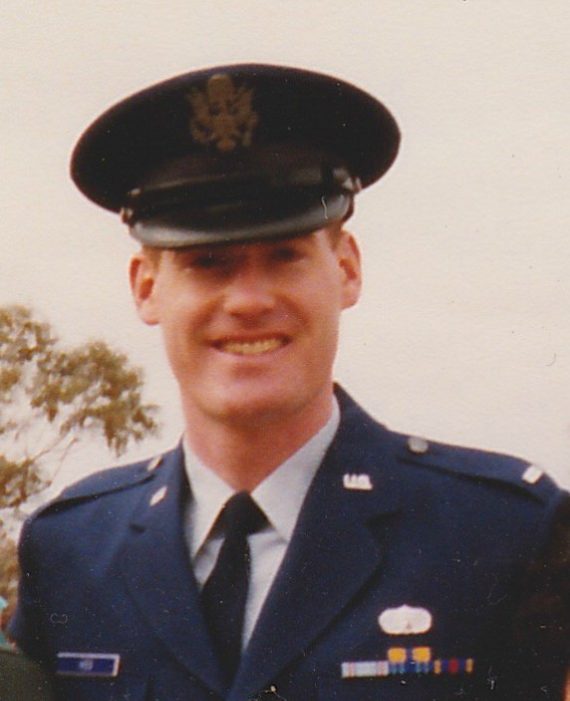
Back in April 1988, I attended a Non-commissioned officer (NCO) Appointment Ceremony on Buckley Air National Guard Base, near Denver, Colorado. Enlisted troops were making the transition from senior airman to buck sergeant – newly minted NCOs.
I had a special role in the ceremony. I was asked to be the guest speaker. I accepted. I was honored. Here’s what I shared with the new NCOs.
NCO Appointment Ceremony Speech
In almost seven years of service, I’ve always heard and read about what officers expect of their NCOs and what NCOs expect of their airmen. The punishment for not meeting these expectations has always been clear – counseling, Letter of Reprimand, Article 15 or Courts Martial – depending on the severity of the missed expectation.
What I’ve heard and read virtually nothing about is what NCOs expect of their officers and what airmen expect of their NCOs! Certainly, the punishment for a leader who does not meet the expectations of his troops is not so clear. I’ve never heard of an airman giving an Article 15 to an NCO!
I can assure you though; the punishment can be very exacting. As a matter of fact, in severe cases, leaders have been sent to their untimely death at the hands of their own soldiers. Usually the punishment exacted upon an ineffective leader is more subtle, ranging from loss of the leader’s self-respect to poor workmanship due to low morale.
As new NCOs you are entering the leadership arena. In the past, you were mostly bystander’s taking leadership roles when you felt comfortable with the situation. Now as an NCO, you will not be afforded that luxury – you are expected to lead by virtue of your rank.
What I want to impress upon you today is that in order for you to be an effective leader, you must build a bond of loyalty and trust between yourself and those people you lead. They must know – and believe – that you are as loyal to them as you are to your superiors.
The way to develop this bond is to, first of all, maintain a firm command of your self-respect. If you respect yourself, you set up the foundation upon which people can respect you.
The key to developing self-respect is to know yourself. Know what your strengths are and exploit them for everything their worth. Know your weaknesses and work hard to better yourself in these areas.
Concentrating on your strengths while working to improve your weaknesses is the secret to success in any endeavor. Don’t let your weaknesses become you master. If everyone waited until they had no weaknesses before undertaking a task – nothing would ever get done.
The great confederate general, Robert E. Lee, at the Battle of Chancellorsville – with only 60,000 men, smashed General Hooker’s union army of 130,000 strong! When asked about the battle, General Lee stated, “I was too weak to defend, so I attacked!” Lee wasn’t interested in dwelling over the fact that his opponent had twice as many men as he had. What he was interested in, was getting his men in a position where they could inflict the most damage upon the enemy.
Be like General Lee – don’t dwell on your weaknesses. Concentrate on how the situation can be worked to your advantage. When we came into this world, each one of us was given a certain sized “army” with which to fight life’s battles. Just like General Lee, we are sometimes called upon to contend with “armies” twice our size!
Maintaining a firm command of your self-respect will get you half way there – the other half comes from respecting those under your command. The bond of loyalty between you and your troops cannot exits unless they know – and believe – that you respect them One of the most effective ways to show your respect for your troops is to know them. Be genuinely interested in them. Know what state or country they’re from. Know their likes and dislikes and most importantly – know their strengths and weaknesses.
As you do with your own strengths – do with theirs – exploit them! If you were a football coach and you had the best placekicker in the league, you’d use him as a placekicker not as a linebacker. The same goes for an NCO – don’t use your placekicker as a linebacker!
Your people will have weaknesses. Make them work to improve in these areas. Encourage them. Instill confidence as they experience initial setbacks.
As your troops begin to see that you are genuinely interested in their welfare, they will begin to genuinely respect you. Their respect for you is born of your respect for them. It’s a vicious cycle and one you must keep alive if you are to be an effective leader.
Dave Ives
Guest Speaker
NCO Appointment Ceremony
Buckley Air National Guard Base, Colorado
5 April 1988